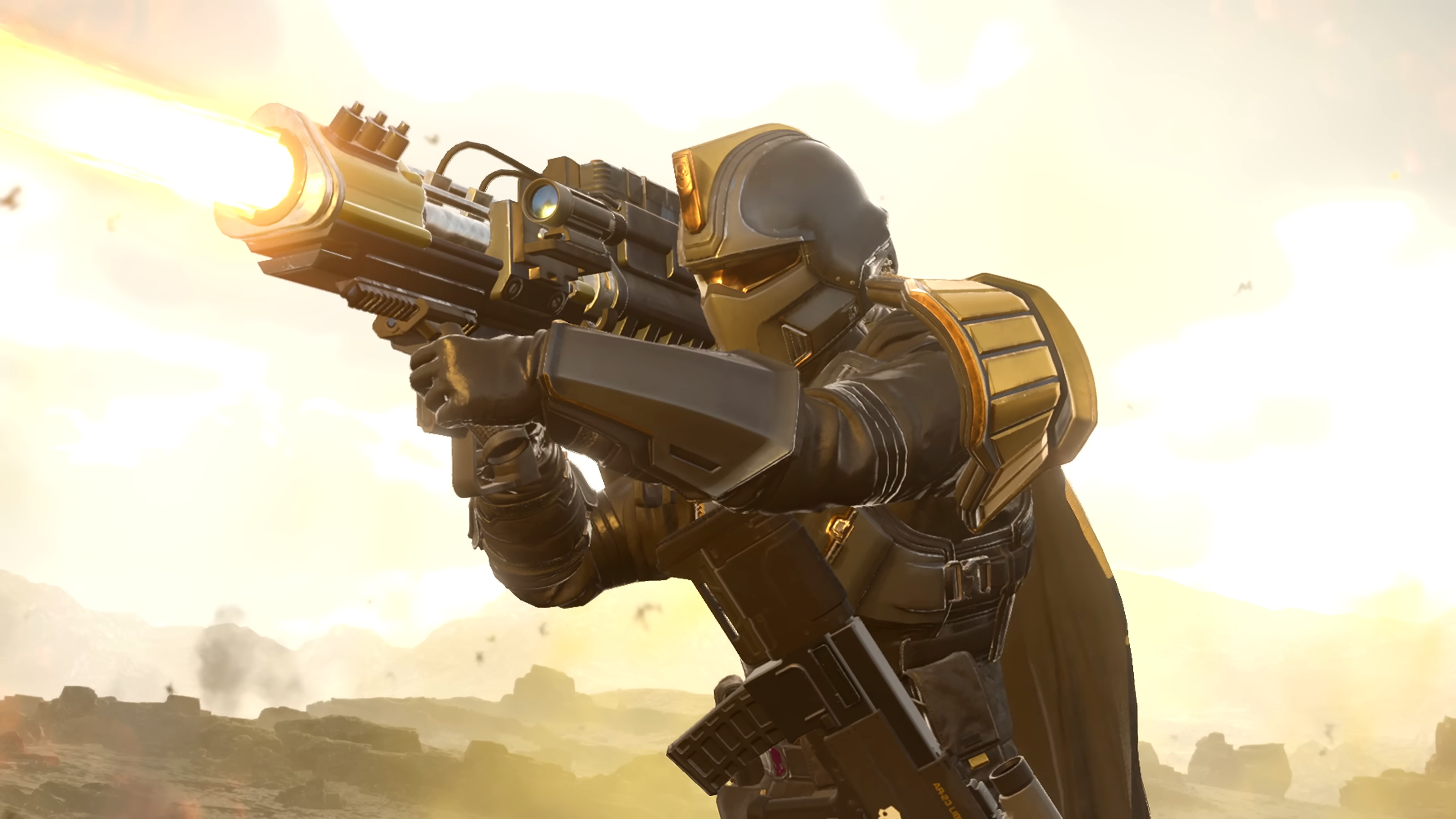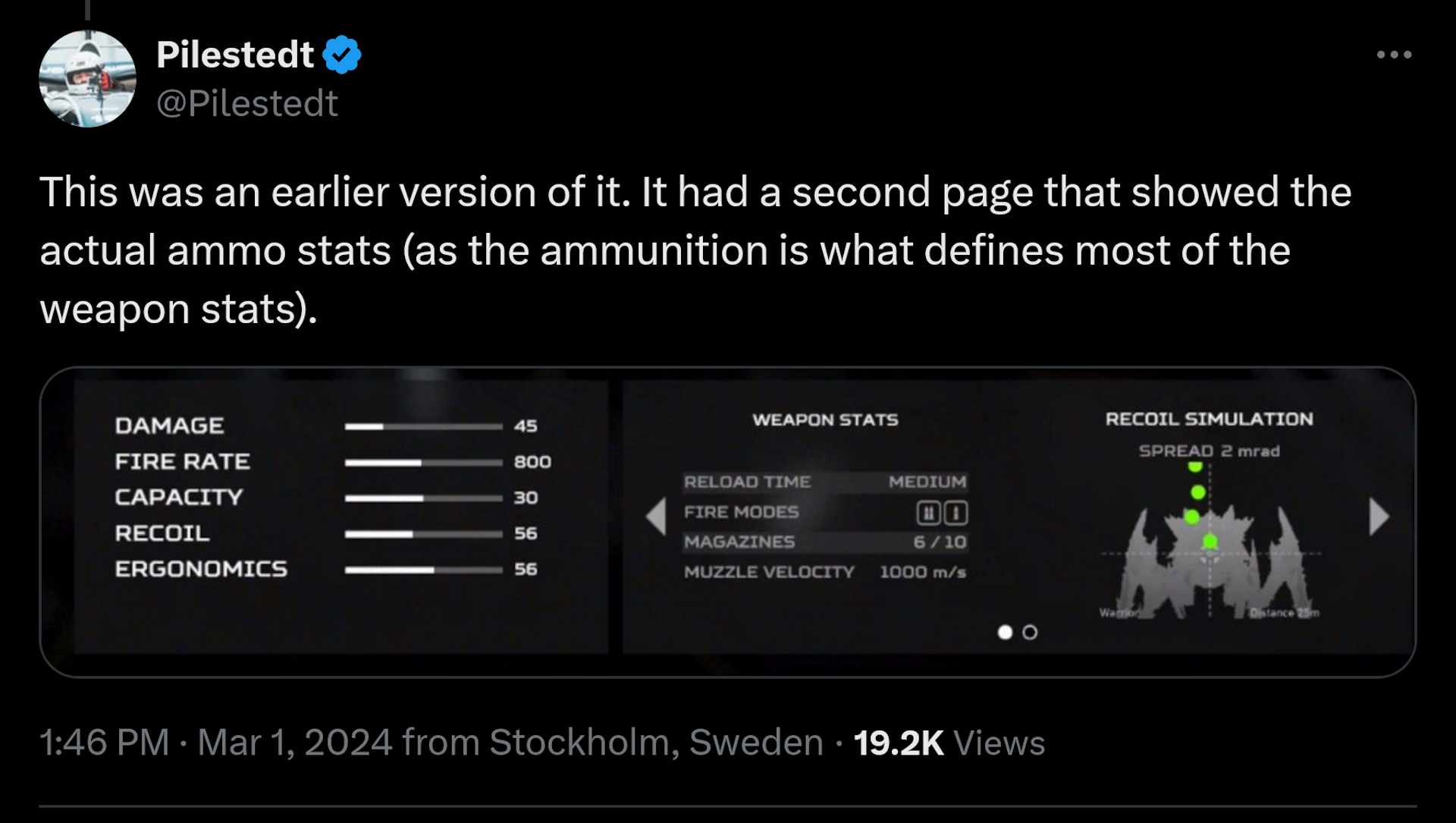Helldivers 2's guns have 46 secret stats so just 'use the one you like the most'
You're at liberty to do so.

Helldivers 2 definitely involves strategy, but the way I play it would not be described as strategic. My first few hours in Arrowhead's hit shooter were chaos, not helped by the fact that I dived straight into Automaton turf and started blasting away at thick-armored robots with a pea-shooter. I got filleted by melee bots, ran into my fellow patriots' air-strikes, thrown through the air at a rate of knots, respawned more times than I could count, and probably set back the cause of liberty by several weeks. But hey: it was a good time.
Now I'm a little more familiar with how the liberty-em-up works (and have discovered the wholesome joy of bug-squishing) and have begun to unlock the various loadout options, I do think a little more before blasting down to a planet's surface. These thoughts largely involve whether I bring an SMG or a shotgun. But some Helldivers are much more thorough, and you don't have to go far on the internet to find the usual tier lists, recommendations, spreadsheets, and warnings about so-called trash builds. Gamers like to min-max and, as the popular game in town, Helldiver kit is being given the full treatment.
The trouble is that the information the game gives you about its weapons, it turns out, is somewhat incomplete. Each weapon has four visible stats (damage, capacity, recoil, and fire rate) alongside certain traits. But it turns out there's a bunch more going on under the hood.
"In regards to Helldivers 2 weapon stats," writes Arrowhead CEO Johan Pilestedt, "so many of you use the 4 stats we show as comparison while each gun has maybe 50 stats in total. The numbers are a guideline but do not paint a complete picture.
"Use the one you like the most."
Well. Some of the smarter Helldivers out there had already figured out that the damage output of certain weapons didn't necessarily mesh with the visible numbers, but this is straight from the horse's mouth. I suspect it's also been prompted by some recent complaints from players who feel they've been kicked from groups for running sub-optimal builds, with the poisonous concept of the meta already wrapping its tendrils around sweet Lady Liberty. I guess it's better than team-killing for resources that are evenly split anyway, but not by much.
In a follow-up tweet, Pilestedt shared an image of an earlier version of the weapons info screen, which "had a second page that showed the actual ammo stats (as the ammunition is what defines most of the weapon stats)."
The biggest gaming news, reviews and hardware deals
Keep up to date with the most important stories and the best deals, as picked by the PC Gamer team.

Speaking as someone who's been playing competitively online for well over two decades, I can tell you that the concept of the meta sucks. It always has, and it ruins the fun of any game where you take it too seriously. I don't think it's bad to want to optimise your build or loadout or deck or whatever it is, I just think when that switches to min-maxing and running the gear you're told to by a spreadsheet then something of the game itself is lost: the experimentation, the fucking around and finding out, the shock realisation that maybe your favourite way to play is not the most efficient.
The long and the short of it is that, whatever Helldivers 2 stat nerds and Pilestedt says, I really like blasting bugs up-close with the space shotgun, or whatever it's called. That thing feels great and the way the bugs disintegrate into chitin and goop is super satisfying. So you can give me the 50 total stats for every gun in the game, and tell me that thing's worthless: I'll still be running around out there with it anyway. For Liberty, sure, but mainly for me.

Rich is a games journalist with 15 years' experience, beginning his career on Edge magazine before working for a wide range of outlets, including Ars Technica, Eurogamer, GamesRadar+, Gamespot, the Guardian, IGN, the New Statesman, Polygon, and Vice. He was the editor of Kotaku UK, the UK arm of Kotaku, for three years before joining PC Gamer. He is the author of a Brief History of Video Games, a full history of the medium, which the Midwest Book Review described as "[a] must-read for serious minded game historians and curious video game connoisseurs alike."

